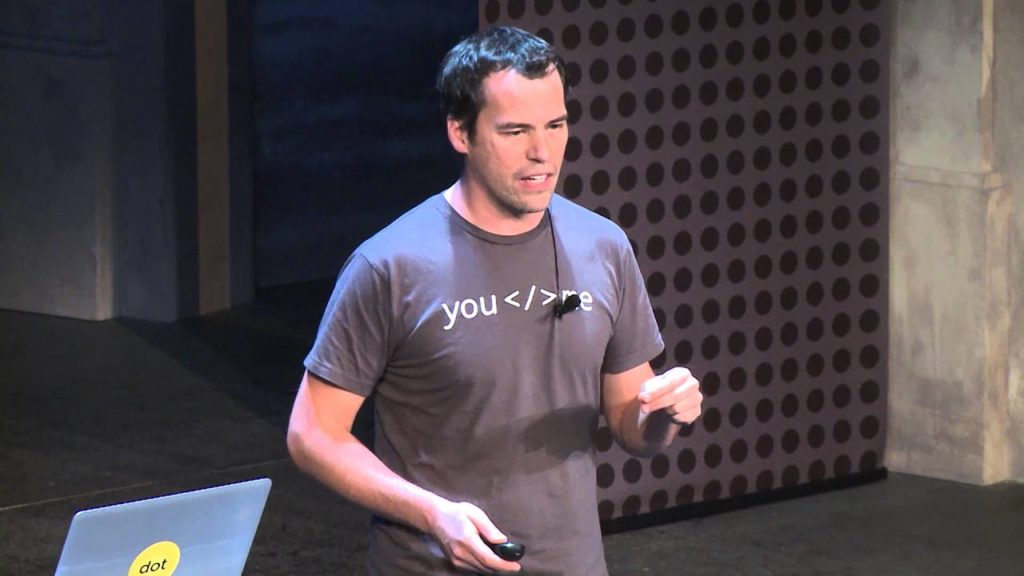
01

Contrary to popular belief, leaders are made – not born.
Great leaders (or what we like to call Supermanagers) are always looking for ways to learn and improve.
In an effort to help you on your journey to becoming a Supermanager, we’ve curated 10 leadership lessons from our very own podcast in this post.
Keep scrolling to discover the thought patterns and best practices that help leaders such as Guy Kawasaki, Lara Hogan, David Cancel, and Sara Varni be extraordinary at the fine craft of management.
- Trust employees to make data-driven decisions
- Become a Servant Leader
- Learn about negotiation, influence, and mediation
- Understand what motivates your teammates
- Schedule regular one-on-one meetings
- Treat your team as a connected network of brains
- Become a coach and sponsor for your team
- Hold your teammates accountable for their responsibilities
- Set a vision and definition of success
- Move from personal selfishness to Menschdom
Subscribe to Supermanagers on Spotify, Apple Podcasts, or Google Podcasts and listen to these tidbits of leadership wisdom on a weekly basis.
1. Trust employees to make data-driven decisions
“When you treat people as responsible adults, and you give them access to the information that is there, they can make really good decisions. And when you don’t give them access to that information, it’s really hard to explain some of your decisions, which then leads to this entire circle of not trusting management and not trusting leadership.”
– Michele Romanow, co-founder and president of Clearbanc

Michele Romanow is a serial entrepreneur who started five companies before the age of 33. A Dragon on CBC’s Dragons’ Den, she previously co-founded SnapSaves (which was acquired by Groupon in 2014) and Buytopia.ca.
This extensive career as a leader and entrepreneur has taught Michele the importance of building a culture of trust and transparency.
“Giving people the right information and why you’re doing things, gives other people the opportunity to take initiative and solve the problems that are most important to the company,” said Michele Romanow. “We try to be really transparent around why we’re doing things, when we made big mistakes and why we made those big mistakes.”
If you want people on your team to make good decisions, you need to empower them with the right data and information.
2. Become a Servant Leader
“Our version of Servant Leadership is the idea that if you’re a manager, if you’re a leader, your job is to serve those above you… and those people above you are the individual contributors, the managers, basically the people closest to the customer.”
– David Cancel, CEO at Drift

David Cancel is a five-time founder, two-time CEO, and best-selling author of Conversational Marketing. He was named the top-ranked CEO by USA Today and is currently an Entrepreneur in Residence at Harvard.
According to him, all modern managers and leaders should learn about the art of Servant Leadership:
“Individual contributors are those who are the closest to the customers. They have first-order feedback, versus, you know, the CEO… the manager. That’s where the truth is in our world,” said David Cancel. “So, we took that model, and we added to it. What that means is my job is really to support everyone above me.”
As stated by its founder, Robert K. Greenleaf, a Servant Leader should focus on helping their direct reports grow and become more autonomous. When leaders adopt the Servant Leadership mindset, they are more likely to remove roadblocks and retain top talent.
3. Learn about negotiation, influence, and mediation
“There are tremendous resources out there about negotiation, influence, mediation. Skill sets that every leader would be wise to dig into. Focusing on that core set of influencing, negotiation, conflict management, crucial conversations… You’ll never regret it.”
– Michael Watkins, CEO coach and author of The First 90 Days

Michael Watkins is an expert in transition acceleration for leaders, teams and organizations. He is a Professor of Leadership and Organizational Change at the IMD Business School and was recently ranked among the top fifty management thinkers globally by Thinkers50.
One of the key leadership lessons shared by Michael is the importance of learning about negotiation and influence. According to him, these are skills that will help you stand out as a leader and overcome the self-doubt phase (also known as Imposter Syndrome):
“You take a challenging new role, of course, you’re excited. Of course, at some level, you feel like you’re ready. Of course, people who put you there think you’re able to do it. But there’s almost always this little voice that says… I’m not really fully ready,” said Michael Watkins. “It’s just incredibly common. I’m not even sure it would be a good thing if you didn’t have some self-doubt some of the time. I’m not sure what that would say about your level of self-confidence… verging into arrogance.”
If you’ve recently transitioned into an executive role, episode #11 of the Supermanagers Podcast will teach you how to climb up the learning curve.
4. Understand what motivates your teammates
“One thing that I can look back on and wish that I’d learned earlier on is that… what motivates you as an employee might not motivate your team members, and everyone is motivated by different things. Some people are motivated by titles, some people are motivated by work-life balance, some people are motivated by a ton of money. And I think getting down to what that true motivation is for each employee is really critical if you want to drive the optimal result across that entire team.”
– Sara Varni, CMO at Twilio

Prior to joining Twilio as a Chief Marketing Officer, Sara Varni was a leader at Salesforce – where she grew from Product Marketing Manager, all the way to SVP of Marketing.
In her journey as a leader, Sara has learned the importance of understanding your team’s motivations and empowering them to develop professionally within your organization. Sara explains that when she joined Twilio, she sat down with every employee for 30 minutes to understand what their role was, how they fit into the organization, and what got them up in the morning:
“That gave me a great composite of the culture of the team and allowed me to think about… Alright, these are some tactics or these are some programs that are really going to motivate this group,” said Sara Varni. “And these are some things that are going to turn them off and make them not feel like they’re part of Twilio.”
Scheduling one-on-ones or skip-level meetings can be a great way to get to know your team and understand their motivations.
5. Schedule regular one-on-one meetings
“The important part of regular 1-on-1s is not that information is conveyed, but it’s about you being consistent as a leader. What is more important than trust and respect in all directions on a team? A 1-on-1 over time will show your team that you care about that.”
– Michael Lopp, author of Rands in Repose and Managing Humans

During his career, Michael Lopp has led rapidly growing teams at companies like Netscape, Pinterest, Slack, and Apple. He is the author of Managing Humans, Being Geek, and The Art of Leadership – and has been writing for over 17 years, sharing his insights on management, culture, and technology through his blog, Rands in Response.
In episode #8 of the Supermanagers Podcast, Rands talks about the power of scheduling regular one-on-one meetings to build trust with your direct reports, as well as the importance of asking clarifying questions to detect disasters before they occur:
“Anytime that something doesn’t seem right to me, whether it’s like super wrong or kind of wrong, I always ask clarifying questions. I’m just trying to probe and get a sense of what’s going on, not in a micromanaging way, just sort of seeking clarity,” said Michael Lopp. “So I say, ‘what I heard you say is this, and I repeat what you said’, and 7 out of 10 times, they say yeah, you’re right. And 3 out of 10 times, they’re like… That’s not at all what I said.”
According to Michael Lopp, experienced leaders develop a certain kind of intuition (something he calls The Twinge). It’s your responsibility as a leader to follow that intuition when it tells you that something might be wrong.
6. Treat your team as a connected network of brains
“I build trust by understanding how people think about problems. But if they never let me in, something’s wrong and that’s bad. I want to encourage a collaborative relationship with the people that work with me.
Bring a bunch of tools to the table and then train your team on how do they engage you into helping outright. We’re building a connected network of brains. Not a tree of brains.”
– Jean-Michel Lemieux, CTO at Shopify

Jean-Michel Lemieux is the Chief Technology Officer at Shopify and has an impressive career history. Prior to joining Shopify, he served as the Vice President of Engineering at Atlassian and led a team of over 150 engineers in his role as Chief Architect for Rational Team Concert, a division of IBM.
One of our main takeaways from Jean-Michel’s interview is that Supermanagers know when to lead and when to follow. According to Jean-Michel, great managers follow a 25/50/25 leadership model:
“25% of my time, I’m your boss, and I’ll keep you accountable for big goals, I’ll push you and stretch you, and make you a bit uncomfortable.
50% of my time, I’m your peer. And as a peer, I need you to brainstorm with me, I need you to bring challenges and questions. I want to know what kind of decisions you’re trying to make. And I’m going to go into brainstorming mode with you. And it would be terribly ineffective if you cannot tap into our collective experience.
And then 25% of the time, I work for you. And in our 1:1s, I expect you to bring homework assignments that I have to do on your behalf.”
If you’re a manager or team lead, remember to maintain a balance between keeping your teammates accountable, helping them with challenges and ideas, and supporting them with their professional development.
7. Become a coach and sponsor for your team
“Coaching is all about asking open questions to help prompt that introspection, those lightbulb moments in the person you’re talking about. It’s not leading them to the answer. That’s still mentoring. With coaching, you’re a vessel of questions to help the other person connect their own dots.”
– Lara Hogan, author of Resilient Management

Lara Hogan is a coach for leaders in tech and the author of Resilient Management, Designing for Performance, and Demystifying Public Speaking. Prior to founding Wherewithall, Lara spent a decade growing emerging leaders as the VP of Engineering at Kickstarter and an Engineering Director at Etsy.
As an advocate for underrepresented people in tech, Lara highlights the importance of coaching and mentoring your team, as well as becoming a sponsor for underrepresented minorities.
“Sponsoring is delegating big projects. It’s giving them stretch assignments, putting your reputation on the line for them,” said Lara Hogan. “Coaching is all about creating the space and the environment for this other person to connect their own dots, helping them figure out what they should do.”
One of the most important skills you can learn as a leader is asking open-ended questions to help your teammates reflect and come up with their own solutions. According to Lara Hogan, “what” questions are always better than “why” or “how” if you want to encourage critical thinking and introspection.
8. Hold your teammates accountable for their responsibilities
“As a leader, it’s your responsibility to communicate to your team and build trust. If you don’t get them to trust you, and vice versa, then they won’t be able to do the work or make the team a better team.”
– Eran Aloni, COO at Gong

Eran Aloni has over 20 years of experience building and scaling enterprise solutions. Before joining Gong, he was COO and VP of Product at Adobe EchoSign, VP of Product at Influitive, and VP of Product Marketing at Clarizen.
In his journey as a leader (which started at a young age, when he joined the Israeli military) Eran has learned the importance of delegating important tasks to your team and holding them accountable for their responsibilities.
“If people don’t feel accountable, they can’t learn, right? Because if it’s not my responsibility, and it’s not my fault, or it’s not something that I have done that caused this to fail, then I would not drive myself to try and do better next time because it’s not my problem. It was not something that I was accountable for.” said Eran Aloni. “Again, it goes back to trust, right? It’s very difficult to have someone be accountable for something if they don’t trust you.”
According to Eran, having strong culture of accountability means that you’ll never hear excuses and your team will recover much more effectively from failure.
9. Set a vision and definition of success
“You have a responsibility to view the future and to really set an idea that people can get behind so that they feel that they understand what success looks like. Once you determine what that meaning of success is, and what that vision for the future is, you, as a leader are supposed to provide the team with the tools or assets that they need to get there. And then you gotta get out of the way.”
– Kirstine Stewart, Head of Shaping the Future of Media at the World Economic Forum

Kirstine Stewart is an Executive Committee Member and Head of Shaping the Future of Media at the World Economic Forum. Prior to joining the WEF, she occupied C-suite positions in two successful technology companies, served as Head of the Canadian Broadcasting Corporation (CBC), and led Twitter’s North America Media team. Kirstine is also the author of Our Turn, a book that helps women discover their leadership potential.
According to Kirstine, great leaders set a common vision for their team and empower their direct reports to use their talents and skills to advance towards a common goal.
“Part of leadership is tapping into the brainpower and skill set of the folks that you are leading and helping them unleash that to contribute to a bigger picture,” said Kirstine Stewart. “You’re there to think about what the direction is, as opposed to knowing all the answers.”
The truth is, if you want to create a high-performing team, you need to set clear goals, tap into your team’s talents, and leverage their knowledge and experience.
10. Move from personal selfishness to Menschdom
“Mensch is a German word. And it’s very difficult to describe, like many, many German words. It has to do with trust, with faith, with generosity. Someone who takes the high road, someone who looks out for the greater good. Society’s good as opposed to personal good. And I think that over the course of your life, you should move from personal selfishness to Menschdom, where you care more about society, and you care more about the bigger picture than your own individual picture.”
– Guy Kawasaki, Chief Evangelist at Canva and author of The Art of the Start

Guy Kawasaki was one of the Apple employees originally responsible for marketing the Macintosh computer in the 1980s. During his time as Apple’s Chief Evangelist, he worked closely with Steve Jobs and popularized the concept of evangelism marketing. Today, Guy is the Chief Evangelist of Canva, a brand ambassador for Mercedes-Benz, and the author of more than ten books, including Wise Guy and The Art of the Start.
The last leadership lesson we’ll share with you today is the importance of looking after the greater good, instead of doing things because they’ll benefit you. As Guy Kawasaki said during his interview, great leaders put their teammates’ needs first and are always looking for opportunities to share the spotlight with other people.
“To be successful in a company, you need the team behind you,” said Guy Kawasaki. “A mensch would treat people in the company that’s beneath him or her in terms of power or compensation, like peers.”
Those were our top 10 leadership lessons from the Supermanagers podcast.
If you liked these quotes and would like to listen to more leadership wisdom from leaders around the world, make sure to subscribe to Supermanagers wherever you listen to podcasts and leave a review if you’re enjoying the show! 🎙

Latest episodes
Fellow Newsletter
Get exclusive interviews and leadership best practices directly into your inbox.








